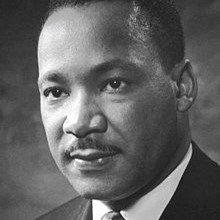
Aint Gonna Let Nobody Turn Me Round
Traditional
This is a freedom song based on the spiritual 'Don't Let Nobody Turn You Round' and became an American civil rights anthem, sung during demonstrations. The freedom songs are playing a strong and vital role in our struggle, said Martin Luther King, Jr. They give the people new courage and a sense of unity. I think they keep alive a faith, a radiant hope, in the future, particularly in our most trying hours. Excerpt from the book "Songs a Weapon in Rights Battle" by Robert Shelton published 1962.
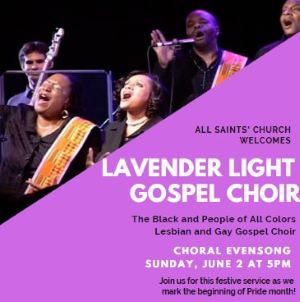
Amazing Grace
John Newton, arr, Lavender Light Gospel Choir
Founded in 1985, Lavender Light is a mixed chorus (women and men) in New York. Although the group encompasses many ethnic and spiritual backgrounds, the choir provides a special ministry to black lesbians and gays, who have historically been pressured by their communities to choose between their blackness and their gayness. Terence Gordon, their director in the 1990s created this arrangement. We heard it when we attended a Lavender Light’s rehearsal in Manhattan in 1999.
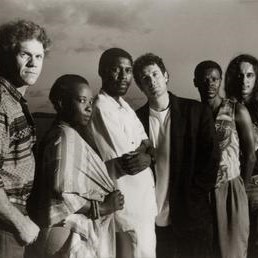
Asimbonanga
Johnny Clegg
This is an anti-apartheid song written in Zulu by the South African racially integrated band Savuku and released in 1986. It alludes to Nelson Mandela and translates to, “We have not seen him.” When we perform the chorus of this song we gesture to the audience and sing in Zulu words which translate to, “Hey you, and you and you, when will we get there?”
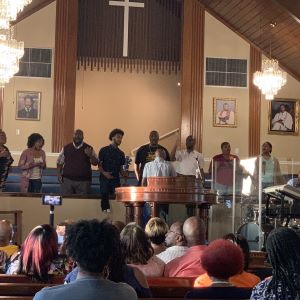
As We Leave This Place
E Dewey Smith Jr & The Hope Mass Choir
'As We Leave This Place' was taught to Tony Backhouse by Jeffery “Butter” Pelrean, the director of New Orleans gospel choir Created to Worship (CTW). CTW is a choir based in New Orleans, Louisiana, USA.
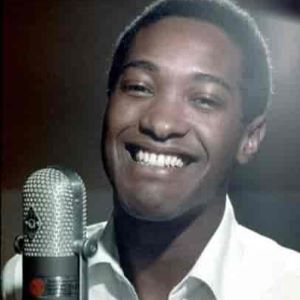
Change Gonna Come
Sam Cooke
This song was inspired by various events in Cooke's life. He wrote it when he and his entourage were turned away from a whites-only motel in Louisiana in 1963. Cooke felt compelled to write a song that spoke to his struggle and of those around him, and that pertained to the Civil Rights Movement and African Americans.
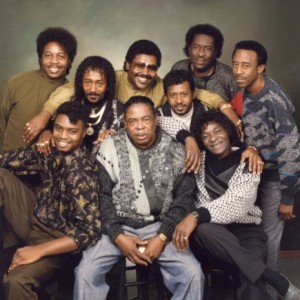
Children Are You Ready
Traditional
This is a traditional song recorded in 1966 by Robert Blair and the Fantastic Violinaires, an American gospel group founded in 1952 in Detroit, Michigan. Blair was the leader of the group from 1965 until his death in 2001. Over his lifetime he released 30 albums with several labels.
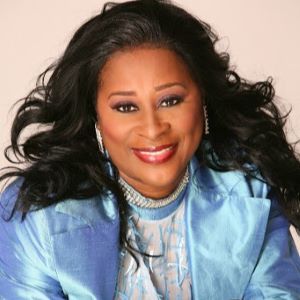
Get Your House in Order
Dottie Peoples
Dorothy "Dottie" Peoples is an American gospel singer and songwriter born in Ohio and now based in Atlanta, Georgia. She has been dubbed “The Songbird of the South.” After completing high school, Dottie toured with gospel pioneer Dorothy Norwood, a member of The Caravans. In this song Dottie Peoples emphasises the importance of personal accountability and the need to make amends. It reminds us we have the power to change, grow and become better versions of ourselves.
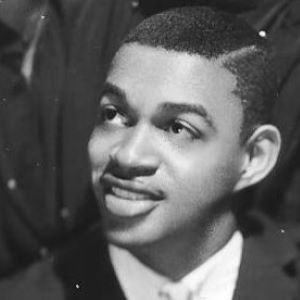
Jesus and Me/It's Jesus In Me
James Herndon & Cassietta George
Herndon and George recorded this song in 1963 while members of The Caravans, with Shirley Caesar singing lead. Herndon played piano for The Caravans for many years and wrote many of their hits. At time of writing, 2024, he is still singing and playing in North Carolina. Cassietta George joined the group in 1954.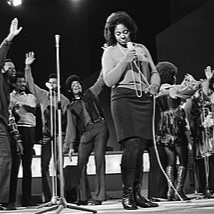
O Happy Day
Edwin Hawkins Singers
Edwin Hawkins revolutionised what it meant to be a gospel artist. His crowning achievement was bringing his arrangement of 'O Happy Day', originally an 18th Century hymn, to wider audiences. The song debuted in 1968 and became the first gospel song to hit the secular charts in the USA. It enjoyed a resurgence with the 1993 film "Sister Act 2: Back in the Habit."
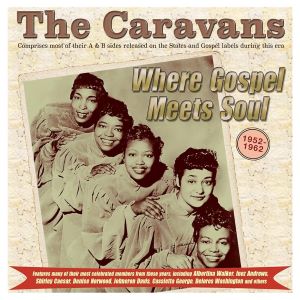
Holy Boldness
Shirley Caesar
Caesar wrote this song while a member of The Caravans, an African-American gospel music group that was started in 1947 by Robert Anderson. It reached its peak popularity during the 1950s and 1960s, launching the careers of several artists, including Delores Washington, Albertina Walker, Bessie Griffin, Cassietta George, Dorothy Norwood, Inez Andrews, Shirley Caesar and the Rev. James Cleveland. 'Holy Boldness' was also recorded by The Clark Sisters.
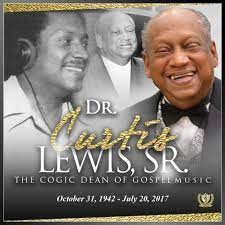
How Glad I Am
Curtis Reginald Lewis/Pentecostal-BMI
Curtis Reginald Lewis was born in Fort Worth, Texas, grew up in Chicago, and moved to New York City in the 1940s. Lewis subsequently became one of the first black composers and lyricists to own a music publishing company on Broadway in the early 1950s. This song was recorded by the Pentecostal Choir of Detroit.
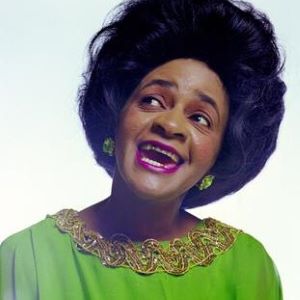
How I Got Over
Rev W.H.Brewster
This is the first song Tony Backhouse taught Café of The Gate of Salvation in 1987. 'How I Got Over' was written by Rev William Herbert Brewster (1897-1987), an influential composer, and playwright. Brewster was a Baptist minister at East Trigg Baptist Church in Memphis, where Elvis Presley often attended. Our version of the song is based on an arrangement by Clara Ward, lead vocalist of The Famous Ward Singers. The song is based on an earlier song written by Rev Clarence Cobb of the First Church of Deliverance, Chicago.
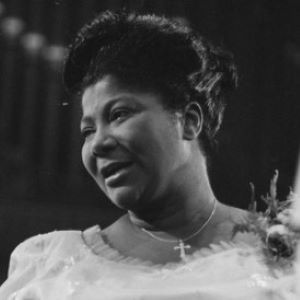
I'm Willing to Run All The Way
Various
The composition is attributed to Rev. James Cleveland, or to Bobby Smith and Mahalia Jackson - we are still looking for the truth. It has been recorded by The Staple Singers, B.B. King and many other artists. Our arrangement is styled after Mahalia Jackson's 1954 version titled 'Run All The Way'. Mahalia Jackson became the soundtrack for the American civil rights movement and was a confidante, supporter and touring companion to Martin Luther King Jr. She sang at Selma, the March on Washington and MLK's funeral.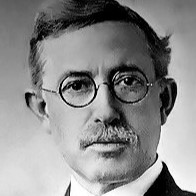
I Come to the Garden
C. Austin Miles
This is one of the most revered hymns in the African American canon. Charles Austin Miles (1868-1946) was a prolific American writer of gospel songs, who is best known for his 1912 hymn 'In the Garden'. Austin wrote and composed more than four-hundred hymnals.
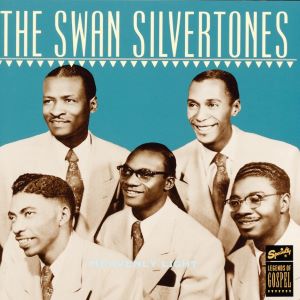
I Cried Holy
Nettie Dudley Washington & WM Dudley Cantwell
Nettie Dudley Washington wrote the lyrics while E.M. Dudley Cantwell provided the music. Set to the tune of 'Cried Holy', the song was published in 1923. It appears in many hymnals including the "New National Baptist Hymnal" and the "African American Heritage Hymnal". Our arrangement by Tony Backhouse is based on a recording by The Swan Silvertones.
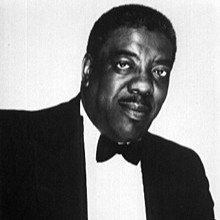
I Don’t Feel Noways Tired
Rev James Cleveland
Reverend James Edward Cleveland (1931-1991) was an American gospel singer, musician, and composer. Known as the "King of Gospel", Cleveland was a driving force behind the creation of the modern gospel sound by incorporating traditional black gospel, soul, pop, and jazz in arrangements for mass choirs.
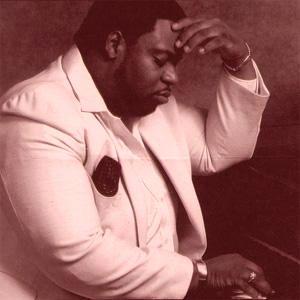
I Shall Wear a Crown
Thomas Whitfield
Thomas Anthony Whitfield (1954–1992) was an American gospel singer, songwriter, arranger, pianist, choir director and producer best known for helping to shape the fabric of contemporary gospel music with his elaborate choral arrangements and the merging of musical styles ranging from jazz to classical into traditional gospel foundations. This style earned him the respectable title of "Maestro" by many of his colleagues and supporters.
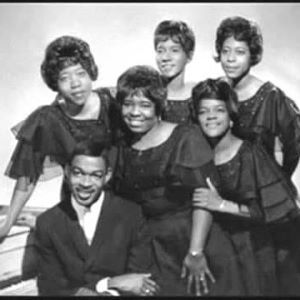
I Won’t Be Back
James Herndon
Herndon grew up with gospel singing legend Shirley Caesar in North Carolina before enrolling at Hillside High School. He remained good friends with Caesar, and she soon asked him to join The Caravans as singer and pianist when she joined that group in the late ‘50s. Herndon’s inspiration was gospel singer Dorothy Love Coates, a member of the Original Gospel Harmonettes.
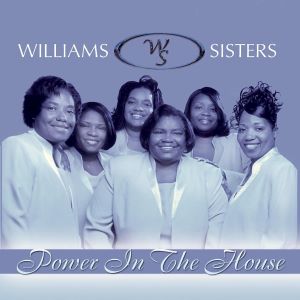
Jesus Will Pick You Up
Jay Lowe
This song was a hit for the Williams Sisters in 1996, written by Jay Lowe. A six-voice family choir, the Williams Sisters began singing together during childhood, consisting of Terry (mother), Renee, Janice, Vaness, Patricia and Juliet. They are based in Philadelphia, Pennsylvania.
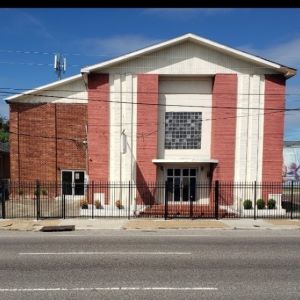
Keep Your Loving Arms Around Me
Milton Brunson
Rev Jermaine Landrum is the pastor and music director at Ebenezer Missionary Baptist Church in New Orleans. His family of singers, a dynasty really, includes grandmother and New Orleans gospel activist Lois DeJean, mother Pamela Landrum, sister Jonte Landrum, and nephews Nicholas and Earl Short. The Landrums have been friends of Café of the Gate of Salvation since 1991, and from them we have learned arrangements of Milton Brunson’s 'Keep Your Loving Arms Around Me' and John P. Kee’s 'Lily in the Valley'.
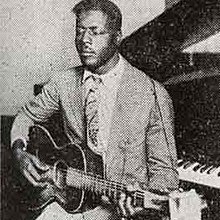
Nobody’s Fault but Mine
Traditional
Recorded by Blind Willie Johnson in 1927 in Dallas, Texas, and thereafter by many artists including Liz Wright, Nina Simone, Grateful Dead and Led Zeppelin. Johnson gave the song a strong blues feel, alternating between vocal and solo slide-guitar solos for the call and response melody lines. The song is a melancholy expression of the spirit as the blues echo depths of guilt and struggle.
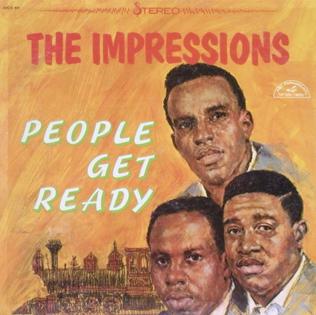
People Get Ready
Curtis Mayfield
'People Get Ready' is a 1965 single by The Impressions, and the title track from the 'People Get Ready' album. The single is the group's best-known hit, reaching number-three on the Billboard R&B chart and number 14 on the Billboard Hot 100. The gospel-influenced track was a Curtis Mayfield composition that displayed the growing sense of social and political awareness.
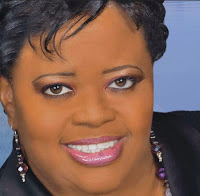
Perfect Praise
Brenda Moore
With a powerful repetition of “Oh Lord, How Excellent” this song is a great example of the pursuit of intensity and ritual through the use of the gospel vamp. It leaves singers exhausted and exhilarated. Originally recorded by Walt Whitman & the Soul Children of Chicago.

One Step
Donald Vails
Reverend Donald Raymond Vails, Jr. (1948 – 1997), was an American gospel musician and pianist. He started his recorded music career in 1977 with the release Donald Vails Choraleers on Savoy Records. Vails would release sixteen albums with two labels, Savoy Records and Sound of Gospel. His song 'One Step' is a re-working of the Prof. Alex Bradford song ‘One Step.’
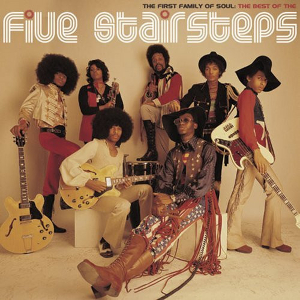
O-o-h Child
Stan Vincent
Notionally a secular song, 'O-o-h Child' has since been recorded by gospel performers like Donnie McClurkin and Edwin Hawkins. Written by Stan Vincent, it was a big hit in 1970 for the Five Stairsteps, a family soul group from Chicago. Our version is based on the recording by the Edwin Hawkins Singers.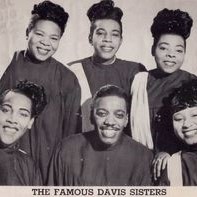
Rain in Jerusalem
Ruth Davis
Ruth Davis, nicknamed Baby Sis (1927-1970), was the lead singer and oldest sibling of the gospel group The Davis Sisters. She founded the group at age 17 in 1945 in Philadelphia, Pennsylvania. The group's music is credited with helping to bridge the gap between gospel and soul. Davis was inspired by male gospel quartets particularly Philadelphia’s Dixie Hummingbirds. This song has been documented as 'Rain in Jerusalem' and 'Reign in Jerusalem'. Either or both meanings work in this uplifting and triumphant song. In the Bible rain is highly symbolic and often used to symbolise a blessing from God.
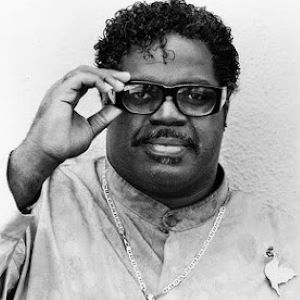
Ride On, King Jesus
Traditional
Originally a 19th century spiritual performed most famously by the Fisk Jubilee Singers when they brought spirituals to the wider world in the 1870's . The lyrics are an answer to mistreatment by slave masters, “no man shall a hinder me”. Our arrangement by Tony Backhouse draws heavily on the version by the great Raymond Myles and The RAMS (Raymond Anthony Myles Singers). Tony heard the "Prince of New Orleans Gospel' in that city in 1992, when The RAMS delivered a spell-binding performance at St John the Divine Church. Raymond was a charismatic and extraordinarily gifted singer and choir director, sometimes compared to Little Richard. Sadly his one full-length album was rejected by major gospel labels because it was "too flamboyant", code for the perception that Myles was unmarketable because he was gay.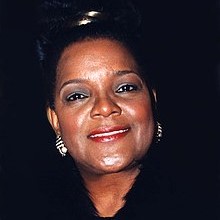
Satan We’re Gonna Tear Your Kingdom Down
Traditional after Shirley Caesar
This song was first recorded by Blind Joe Taggart in 1931. It is commonly thought to be derived from a 19th century spiritual. Our version is based on an arrangement by Shirley Caesar which appears in the Sunday Service Choir repertoire and on the soundtrack of the US television drama series "Greenleaf". The song has been published in several African-American hymnals.
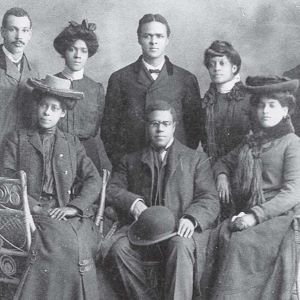
Steal Away
Traditional
Our version of 'Steal Away' is based on an arrangement by the Fisk Jubilee Singers, an African-American a cappella ensemble, consisting of students at Fisk University. The first group was organized in 1871 to tour and raise funds for college. Their early repertoire consisted mostly of traditional spirituals, but included some songs by Stephen Foster. The original group toured along the Underground Railroad path in the United States, as well as performing in England and Europe. A later iteration of the group spent three years touring Australia and New Zealand between 1886 and 1889.
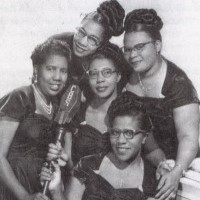
Sweet Home
Margaret Allison
Margaret Allison founded and led the Angelic Gospel Singers in Philadelphia. The group was called "the longest consistently selling female gospel group in African American history" by the Encyclopedia of American Gospel Music. Founded by Allison and her sister Josephine McDowell in 1944, the group continued until Allison's death in 2008.
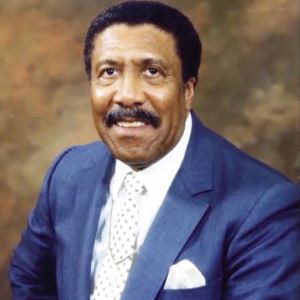
Thank You Lord
Rev Clay Evans
Clay Evans (1925–2019) was an African American Baptist pastor and founder of the influential Fellowship Missionary Baptist Church in Chicago, Illinois, famous for its gospel music infused Sunday service and choir. Evans' church, nicknamed "The Ship", secured a radio broadcast in 1952.
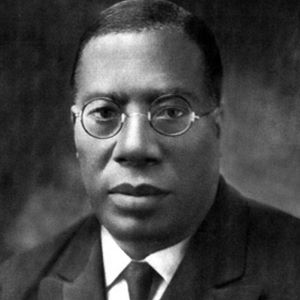
The Storm Is Passing Over
Charles Albert Tindley
This hymn was first published in Tindley’s collection "Soul Echoes" in 1905. Like many classic hymns, this text draws on the imagery of storm and sea, especially the biblical account of Jesus calming the sea in Matthew 8:23–27. Our version is based on the Curtis Burrell arrangement from the 1982 film 'Say Amen, Somebody' which documents the history and significance of gospel music.
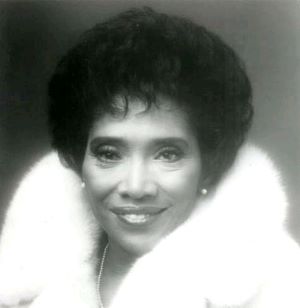
Til I Met The Lord
Shirley Caesar
The Caravans were an American gospel music group that was started in 1947 in Chicago by Robert Anderson. The group reached its peak popularity during the 1950s and 1960s, launching the careers of numerous artists, including Delores Washington, Albertina Walker, Bessie Griffin, Cassietta George, Dorothy Norwood, Inez Andrews, Shirley Caesar and the Rev. James Cleveland, among others. Cassietta George is the featured soloist in The Caravan’s original recording of this song upon which our arrangement is based.
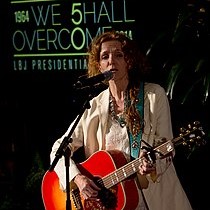
Up to the Mountain (MLK Song)
Patty Griffin
Considered a contemporary folk song rather than gospel, this song touches upon emotions surrounding Martin Luther King Jr.'s famous 1968 speech "I've Been to the Mountaintop", given the day before his assassination in Memphis, Tennessee.
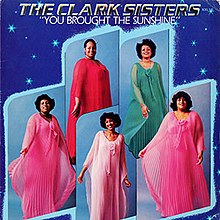
You Brought the Sunshine
Elbernita 'Twinkie' Clark
Gospel meets disco! This song was a hit single for The Clark Sisters in 1985, peaking at number 16 on US Billboard Hot R&B/Hip-Hop Songs and number 27 on Dance Club Songs in 1983. The song was released in 1981 but did not become a hit until four years later when it was played by Frankie Crocker on the R&B Soul radio station WBLS in New York City. Gospel radio stations refused to play the song because of its reggae beat. Beyoncé sampled this song on her 2022 album 'Renaissance' in the song 'Church Girl'.


